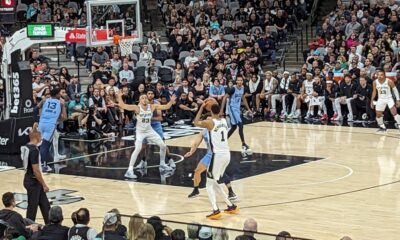The NBA and its Expansion Plans: A Closer Look
In December 2020, amid empty arenas and escalating loans and credit lines to owners, NBA Commissioner Adam Silver hinted at a potential expansion of the league – a concept that had laid dormant for nearly 20 years. Over the past three years, this concept has kindled a new industry, with potential ownership groups raising funds in anticipation, new arena plans announced in Las Vegas, and even LeBron James expressing interest in being awarded a team.
Understanding the NBA Expansion Process
Silver further fueled expansion speculation during the June Finals. He suggested that once the collective bargaining deal with the players was finalized, which occurred last year, and with the national TV rights deal secured in July, expansion would be a major talking point. During the annual fall board of governors meeting held last week in New York, Silver provided an update that expansion would be discussed sometime this season, though no specifics were given.
This leaves us with several pressing questions: When will it happen? Where will the new teams be located? Who will own them? Why is now the right time? How will the expansion unfold? NBA insiders Tim Bontemps, Kevin Pelton, and Brian Windhorst share the latest information from their conversations with sources within and around the NBA about how this complicated process could unfold.
Prospective Locations for Expansion
The process of introducing new teams is uncertain and fluid. The last NBA expansion announcement was in 2002, and the Charlotte Bobcats started play in October 2004. However, this timeline is not a fair comparison as the league didn’t consider other cities and was replacing a relocated team, enabling a quick turnaround.
With Silver not fully committed to expansion and the timeline for starting the process undefined, both league sources and those working on forming bidding groups are targeting the 2027-28 season for expansion, although a 2026-27 start isn’t entirely off the table. Potential cities in the running include Seattle, Las Vegas, and even Mexico City.
Why is Expansion Being Considered Now?
The central issue surrounding expansion is economic. The question is whether the short-term and long-term rewards of introducing new teams and subsequently diluting the shares of collective revenue, particularly media rights, outweigh the drawbacks. Currently, all NBA teams own 3.3% of the league and share revenue accordingly. Introducing more teams slightly reduces this sharing, but over the long term, those percentage points signify substantial sums.
On the other hand, the expansion fee, which new ownership groups pay directly to the current owners for the rights to their new teams, could provide a significant short-term windfall. Expansion could also broaden the league’s footprint and overall fan base, offering potentially positive long-term effects.
What are the Potential Impacts of Expansion?
The introduction of new teams could bring a host of changes. For instance, the salary cap would not be impacted by expansion fees as these are paid directly to current owners. While players do not have a say in adding teams, the National Basketball Players Association would likely support the idea of adding another 30 jobs.
The introduction of new teams could also impact the NBA playoff format and the NBA Cup. With a 32-team pool, the NBA could adopt a World Cup-style format with eight groups of four teams. This could result in a more streamlined tournament.
Who are the Potential Owners and Cities for New Teams?
Seattle and Las Vegas have long been considered front-runners for new teams. However, other cities, including Mexico City, Montreal, Vancouver, Kansas City, San Jose, and Austin, could potentially be home to new teams. Potential owners range from the Kraken’s ownership group in Seattle to LeBron James and former Milwaukee Bucks owner Marc Lasry in Las Vegas.
This exploration into NBA expansion opens a new chapter in the league’s history, with potential long-term impacts on the league’s economic landscape, team dynamics, and fan engagement. Stay tuned for further updates on the expansion draft process and the potential impact on the league.
 COL
COL  MIL
MIL  MIN
MIN  DET
DET  SEA
SEA  TEX
TEX  NYM
NYM  PIT
PIT  OAK
OAK  NYY
NYY  CHC
CHC  HOU
HOU  LAD
LAD  KC
KC  STL
STL  CLE
CLE  SD
SD  CIN
CIN  SF
SF  CHW
CHW  TOR
TOR  BOS
BOS  TB
TB  BAL
BAL  PHI
PHI  ATL
ATL  MIA
MIA  ARI
ARI  WSH
WSH  LAA
LAA 








